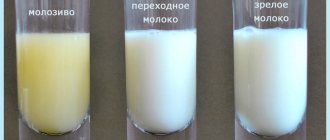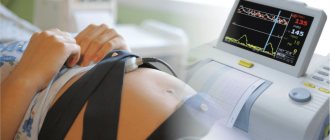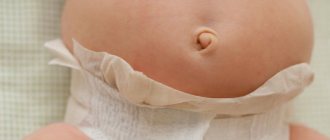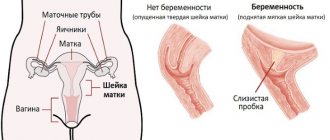What is “flatulence” or increased gas production after childbirth?
Increased gas formation after childbirth is one of those moments that gives little pleasant impressions that a woman in labor may encounter. This can really bring some coldness into the life of the spouses in the relationship, because not everyone, even the best husband, will tolerate such “concerts”.
Yes, women experience gas after childbirth. What to do with it? Everyone knows that flatulence is when an excess amount of gas accumulates in the intestines. It is directly related to the foods that the mother of a newborn baby eats. Although, one cannot help but pay attention to the fact that gases before childbirth are also a fairly common occurrence, which a pregnant woman should not be afraid of. This is all temporary.
Diet after childbirth with increased gas formation
So, in order to minimize attacks of increased gas production as much as possible, you should adjust your diet, especially since this is important not only for a young mother, but, first of all, for the baby (we are talking about natural feeding). You should remove from the table any cabbage, all legumes, potatoes, radishes, turnips, black bread, milk (this does not apply to fermented milk products, but applies to ice cream), mushrooms, onions, artichokes, grapes, pears, apples, porridge (except rice ), soda, yeast-based flour products. This list is quite large, so a mother, in order to avoid gases in the intestines after childbirth, should pay special attention to it, carefully studying and drawing conclusions.
If you have increased gas formation after childbirth, you can eat the following products that will alleviate your condition: citrus fruits, sweet peppers, muesli, bio-yogurt, acidophilus, pumpkin (stewed, pumpkin porridge), rice (both porridge and as a side dish), tea with fennel seeds.
In addition, you should eat small meals 5-6 times a day, take walks and do gymnastics or fitness, if your doctor allows, then problems with gases will not bother you.
When to see a doctor
A visit to a specialist should not be delayed if several months have already passed after giving birth, and dietary restrictions do not bring the desired result.
In this case, often the cause of gas formation is the development of dysbacteriosis. This disease is easily treated with modern medications. Remember! There is no need to self-medicate, because taking medications not prescribed by a specialist can have a detrimental effect on the baby’s health. Treatment should be prescribed only by a doctor who will select an individual, most gentle treatment schedule for you. Read also:
How long does postpartum depression last and how does it occur in nursing mothers?
It is also necessary to remember that for normal bowel function it is necessary to consume a sufficient amount of water. This is especially important in the first days after the baby is born.
Causes of flatulence after childbirth
Quite often, gases after childbirth can form in the mother’s intestines due to the fact that while the months lasted in anticipation of the rosy-cheeked baby, the woman’s organs moved a little due to the fact that the baby was developing inside her: as you know, the uterus during this period puts pressure on the internal organs. An enlarging uterus and a growing fetus simply cannot occupy the smallest space in a woman’s abdominal cavity. A very simple and logical conclusion follows from this: all other organs must “move” a little. Due to the fact that some organs become compressed, others are shifted from their usual place and some swelling occurs before childbirth.
Treatment of increased gas formation after childbirth
Not all medications are approved during lactation, so consult your doctor before using medications.
Breastfeeding mothers can treat increased gas formation with the following medications:
1. Simethicone, the most famous trade name of Espumisan. This drug is classified as an antifoam; it breaks up gas accumulations into smaller particles that are absorbed or released.
2. Activated carbon is an enterosorbent; it adsorbs gases, toxins, and bacteria.
3. Enterosorbents also include lignin-based preparations such as: Polyphepan, Filtrum-STI, Entegnin.
4. Smectites are also enterosorbents. These include the well-known drug – Smecta.
5. Antispasmodics. This is cheap drotaverine or its expensive analogue No-shpa. Relieves intestinal spasms and facilitates the passage of gases. During lactation, use only as prescribed by a doctor.
Increased gas formation after childbirth - causes and methods of treatment
In addition to lochia and pain, every third woman after childbirth suffers from flatulence. Often, gas formation is a physiological norm and goes away on its own. However, sometimes bloating and rumbling in the abdomen bother a woman in labor for several months. How to get rid of bloating, can nursing mothers take Espumisan and Linex?
Causes of increased gas formation after childbirth
Due to pressure from the uterus, organs become displaced during pregnancy. It will take a couple of months for them to return to their places after childbirth, and until then, bloating often worries women in labor. In case of delivery with the help of auxiliary means, the recovery process will be delayed. Other reasons for increased gas formation should be noted:
- errors in nutrition;
- disturbance of peristalsis of the gastrointestinal tract after cesarean section;
- the formation of adhesions between the peritoneal organs and intestinal loops as a result of surgery;
- anesthesia and painkillers;
- lack of movement after childbirth or caesarean section;
- insufficient fluid intake.
Why does women experience bloating after a caesarean section?
In addition to uterine contractions, after surgery, women feel a raw pain in the suture area. Gases that appear as a result of the administration of anesthesia and the use of painkillers also cause considerable discomfort. It will take some time to improve the functioning of the intestines and get rid of gases. To do this, you need to adhere to the regime and eat rationally.
The first meal after cesarean section is allowed no earlier than 24 hours later. The main part of the diet is liquid and crushed foods. To improve intestinal motility, you should move, since in this situation bed rest is not beneficial.
Normal or pathological?
Diagnosis includes ultrasound of the peritoneum and a number of tests. Gas formation may indicate one of the following diseases:
- inflammation of the gastrointestinal tract;
- dysbacteriosis;
- adhesions;
- infection;
- inflammatory process;
- helminths;
- stress or psychosomatic disorder.
How to treat?
To eliminate flatulence, nursing mothers are prescribed gentle medications that remove gases naturally. The following medications are most often prescribed to women after childbirth to remove gases: activated carbon, Espumisan, Hilak-Forte, Polyphepan, Simethicone, Entegnin, Smecta, Linex, No-shpu, Sub-Simplex.
These drugs will not harm the baby, some of them are suitable for children, however, without a doctor’s prescription, any remedy may be ineffective. For example, Espumisan will not help get rid of bloating if it is caused by parasites or adhesions.
When is it necessary to see a doctor?
Due to lack of time, women experiment and independently buy medications against increased gas formation.
The risk is not justified - the medicine against flatulence must be approved by a doctor, otherwise it can harm the baby.
The specialist will select the drug not only taking into account breastfeeding, but will also take into account the causes of gas formation: dysbacteriosis, exacerbation of stomach diseases or lack of enzymes.
You should see a doctor if a woman has a fever, nausea, stomach pain, or fecal incontinence after giving birth. The latter indicates weak muscle tone of the sphincter, and if the problem is ignored, complete muscle atrophy is possible.
Basically, after a few months the problem of increased gas formation goes away on its own. However, how to survive this time? After all, gases can cause constant psychological stress, which is not at all beneficial for a new mother during breastfeeding. Due to strong worries and constant tension, milk may even disappear.
During lactation, a mother simply needs to adhere to the correct diet and not eat foods that cause even more bloating due to fermentation and the release of excess gases in the intestines.
What to do about flatulence
Of course, you should definitely visit a doctor. Only a doctor can help you plan your diet correctly and help avoid frequent bloating.
If the cause of flatulence is hidden in dysbiosis (an examination will help find out this), then the situation can be improved not only by diet, but also by the use of prebiotics. Such remedies will also be correctly prescribed by the doctor.
Traditional medicine can also help eliminate increased gas formation after childbirth in a nursing mother. But it is important to understand that some herbal components are contraindicated for women who are breastfeeding. Therefore, only the safest recipe will be offered.
About the diet
If we talk about the cause of gas formation, such as poor nutrition, then, first of all, you should know what foods need to be excluded from the diet.
So, it is not recommended to eat:
- legumes;
- potato;
- radish and radish;
- grape;
- bananas;
- mushrooms;
- cabbage;
- flour products;
- milk;
- carbonated drinks;
- sweets (in large quantities).
Difficult-to-digest foods can also cause bloating if the amount of necessary enzymes for digestion is insufficient.
It is important for a nursing mother to understand that foods that cause increased gas formation affect the composition of breast milk. Thus, colic and gas also appear in her child.
What to do to reduce the likelihood of flatulence in mother and baby:
- eat food that is easily digestible;
- drink more fluids;
- eat at the same time;
- eat small portions, but often.
If you try to comply with these standards, you can easily make the problem less pronounced, and then completely eliminate it.
Drug therapy for breastfeeding women
Depending on the cause of gas formation in a woman who has recently given birth, different medications are selected.
Initially, the doctor will clearly determine whether dysbiosis is present or whether enzyme deficiency has become a prerequisite for the development of increased gas formation, and only then treatment will be prescribed.
It is not recommended to choose gas elimination products on your own. The problem cannot be solved if the medication is chosen incorrectly. In addition, some medications should not be used by breastfeeding women.
Source: https://mbdou20-sakh.ru/rody/povyshennoe-gazoobrazovanie-posle-rodov-prichiny-vozniknoveniya-i-sposoby-lecheniya
Bloating after childbirth: causes, treatment
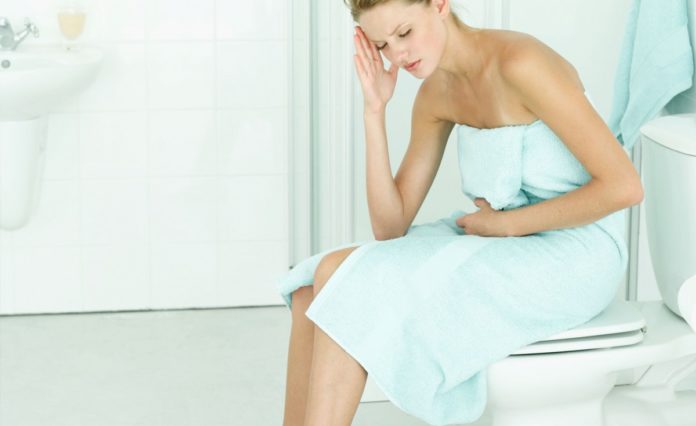
The birth of a long-awaited child is certainly a joyful event for a woman. Time is spent in happy chores of caring for the baby, joyful moments of communication with him. However, often after childbirth a woman’s condition is complicated by unpleasant symptoms, which greatly darkens this bright period of life. For example, in the postnatal period, young mothers often complain of bloating, accompanied by pain, a feeling of heaviness and involuntary gas emission.
What are the causes of bloating in women after childbirth? Why does the abdomen swell after a caesarean section? What anti-bloating medications can be used while breastfeeding? Is it possible to use traditional medicine? Let's talk about this in the article.
Causes and treatments for bloating after childbirth
Flatulence is unpleasant for a patient of any age, and when it comes to a woman during lactation, limited in the range of approved medications, the discomfort increases many times over. Therefore, it is worth discussing why increased gas formation occurs after childbirth, what safe means of relieving the condition exist for both the patient and the child.
Bloating after childbirth can be caused by various factors:
- Exacerbation of gastrointestinal diseases.
- Poor nutrition.
- Rehabilitation period after cesarean section.
- Dysbacteriosis.
- Irritable bowel syndrome (IBS).
- Food allergies.
Persistent, constant or frequently recurring flatulence should cause concern, especially if even nutritional correction does not help to cope with it.
The situation can be aggravated by stress, low physical activity, and eating unhealthy foods that cause increased gas formation. Occasional bloating that does not cause significant discomfort is not considered dangerous.
Symptoms
Bloating during lactation is no different from flatulence that occurs before childbirth or in a woman outside the period of bearing a child. Let's look at the most common clinical situations in turn, in the development of which the patient is worried about excessive gas formation.
Rehabilitation after caesarean section
Although this surgical option is considered common and, in general, routine, women face various consequences. One of the most common and expected is intestinal dysfunction. The activity of peristalsis decreases, which causes bloating and flatulence after childbirth. In addition, the patient may be concerned about:
- weakness;
- lack of appetite;
- difficulty urinating;
- pain in the suture area.
During the normal course of the postoperative period, intestinal motility is restored within 2-3 days. Then the unpleasant bloating disappears and the stool passes. If necessary, drug stimulation is performed using prokinetic drugs (“Domperidone”).
Signs of dysbiosis
This term refers to an imbalance in the intestinal microflora, in which pathogenic strains begin to dominate over beneficial bacteria.
It may occur during antibiotic therapy or surgery. This affects the immune system and the mechanism of food digestion - fermentation and putrefactive processes intensify.
Abdominal bloating after childbirth is combined with symptoms such as:
- Abnormal stool (constipation, diarrhea, their alternation).
- Rumbling in the stomach.
- Soreness (bursting, monotonous or cramping in nature without clear localization).
- Nausea, less often vomiting.
- Unpleasant taste in the mouth.
A nursing mother may experience frequent headaches and complain of increased fatigue and weakness.
Manifestations of IBS
The leading etiological factor is stress, although researchers also name excessive physical activity (including increased risk of difficult childbirth), infectious diseases, and taking medications as possible provocateurs. Women often suffer from irritable bowel syndrome long before giving birth. Pathology can be recognized by the following signs:
- frequent episodes of bowel dysfunction such as constipation or diarrhea (alternation of these conditions is also likely);
- gases in the intestines with a symptom of flatulence (excretion through the rectum);
- abdominal pain;
- feeling of incomplete defecation;
- the presence of mucus in the stool.
The abdomen may swell due to nervous experiences, in situations associated with increased anxiety. This is something to look out for when looking for the cause of your symptoms.
Diagnostics
It consists of a survey (clarification of complaints) and an objective examination, and, if necessary, laboratory and instrumental studies:
- Analysis of blood, urine, feces.
- Search for signs of dysbacteriosis (bacteriological test, polymerase chain reaction - PCR).
- Ultrasound of the abdominal organs.
Women who are breastfeeding (BF) usually do not undergo endoscopy (examination of the stomach and intestines using an optical probe inserted into the cavity of the gastrointestinal tract), however, if it is necessary to clarify the diagnosis, the issue of performing studies of this kind is considered. Sometimes it is necessary to take a biopsy (a fragment of the affected area of the mucous membrane) to send the specimen to a histology laboratory.
Improved peristalsis
To stimulate intestinal motility, you need:
- perform gymnastic exercises (the doctor will tell you what is allowed, because a lot depends on the complexity of childbirth, caesarean section and other nuances);
- walk regularly - for example, walking with a child;
- eat in small, fractional portions, 5-6 times a day.
- drink enough water – and still water.
Do not eat large amounts of food at one time - this stretches the stomach and causes flatulence.
Physical activity has a beneficial effect on the state of the gastrointestinal tract, so even the recovery period after surgical interventions in the abdominal cavity should not pass completely without movement (excluding the initial stage of rehabilitation and any complicated situations).
Nutrition correction
Increased gas formation in a nursing mother can be treated with diet. You need to avoid products such as:
- Legumes
- Smoked meats.
- Canned food.
- Pickles.
- Delicious baked goods.
- Chocolate.
- Citrus.
- Mushrooms.
- Sausages.
- Coffee.
- Cocoa.
- Whole milk.
- Alcohol.
- Chips, crackers.
- Semi-finished products.
- Carbonated drinks.
- Cabbage (except broccoli and cauliflower).
- Potatoes in excess.
- Radish.
- Radish.
- Fresh onions.
- Garlic.
You can eat fermented milk products - depending on tolerance, since in some women bloating is associated with a lack of the lactase enzyme. Fresh vegetables and fruits are limited, but heat-treated ones are allowed.
You should also cook lean meat or fish. You should not fry, it is better to boil, stew, bake in the oven or use steam.
You need to remove potential food allergens from the menu (citrus fruits, strawberries), eat little by little, in fractional portions.
Taking medications
What to do if bloating causes severe discomfort? Symptoms can be eliminated with the help of medications - when breastfeeding, it is allowed to use products based on defoamers - medications that help remove gas bubbles from the intestinal lumen. This:
- "Espumizan";
- "Kuplaton";
- "Koligaz";
- "Disflatil";
- "Infacol".
Sorbents (“White Coal”) can be used occasionally, but caution is required - these medications are not intended for frequent use and can aggravate intestinal dysbiosis. Sometimes a course of enzymes (Pancreatin, Mezim) is recommended.
Causes of bloating after childbirth
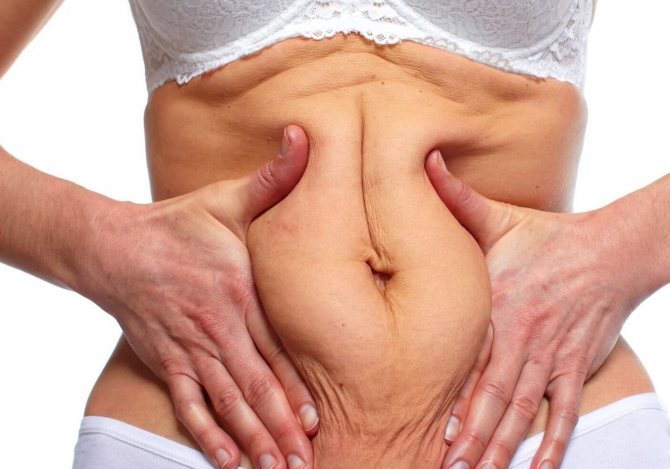
A common problem for women who have recently given birth is bloating with severe intestinal obstruction and painful constipation. The situation becomes significantly more complicated if the birth took place with anomalies, there are tears and stitches were placed. In an attempt to empty the intestines, the woman is afraid to push, because this may cause the stitches to come apart. But for what reason does the stomach swell after childbirth and intestinal obstruction occur?
Fecal incontinence
In addition to flatulence, women in labor often face the problem of fecal incontinence. Involuntary bowel movements and uncontrollable gases can occur due to ruptures and damage in the sphincter area, vaginal tears, changes that occurred during pregnancy with the nerve endings and muscles of the pelvic floor. Most often, these abnormalities in bowel function affect women in labor over 40 years of age. At this age, the body no longer recovers so quickly and reacts more painfully to forced changes during pregnancy.
Additional factors in the development of the syndrome can be excess weight and the presence of chronic intestinal diseases.
Read also:
Reasons for severe weight loss after childbirth
Treatment

In order to get rid of bloating after childbirth, a woman should consult with her doctor, especially if she is breastfeeding her baby. The fact is that not all drugs are suitable. If the active substance of the drug is excreted in mother's milk, this pharmacological drug should be avoided, since its use can significantly harm the health of the child.
The attending physician may prescribe the following medications to the young mother:
- Espumisan is a mild drug that has virtually no side effects, is excreted from the intestines without being absorbed into the patient’s blood,
- Ecoflor is a medicine based on bifidobacteria and lactobacilli. It should not be used in only one case - if you are lactose intolerant,
- Iberogast is an anti-bloating drug based on a herbal base that is safe for nursing mothers.
- Methiospasm is a drug similar in pharmacological action to Espumisan, since it is based on the same active substance - simethicone,
- Linex is another medicine for bloating during pregnancy based on lactobacilli.
Menstruation and flatulence: is there a connection?
Bloating and increased gas production are symptoms that often indicate premenstrual syndrome. Why does a woman start to “blow” before her period?
It's all about hormonal imbalance, due to which the functioning of the intestinal muscles in the body deteriorates and gases appear.
To get rid of bloating before menstruation, you need to adjust your diet, take vitamins with magnesium and potassium, drink medicinal herbs before bed, because it is at night that women experience increased gas.
Bloating and gas are unpleasant symptoms that affect many people. You need to pay attention to such conditions, since there are cases when flatulence can become a symptom of a serious disease, even a tumor in the gastrointestinal tract.
But most often, bloating and gas formation occur due to poor lifestyle and nutrition.
Therefore, important principles in preventing the appearance of such unpleasant symptoms should be: diet, proper nutrition, avoidance of foods that cause increased gas formation, and an active lifestyle.
